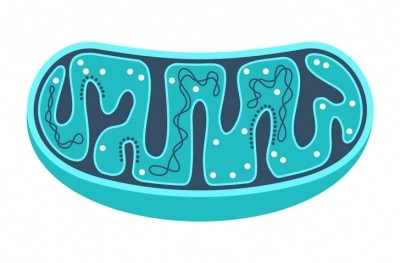‘It’s a new market for ubiquinol’: Study highlights CoQ10 form’s menopause benefits

With chemical structure 2,3-dimethoxy-5-methyl-6-decaprenyl-1,4-benzoquinone, CoQ10 is also known as ubiquinone because of its 'ubiquitous' distribution throughout the human body. Kaneka’s ubiquinol is the reduced form of the ingredient and has been shown to have higher bioavailability than ubiquinone.
CoQ10 plays a vital role in the production of chemical energy in mitochondria—the 'power plants' of the cell— by participating in the production of adenosince triphosphate (ATP), the body's co-called 'energy currency'. While humans can synthesise CoQ10, the levels decline as we age.
There is a significant body of scientific data supporting CoQ10’s role in cognitive health, heart health and anti-ageing. The nutrient is also recommended to people on statins to off-set the CoQ10-depleting effects of the medication.
A 2008 study in the journal BioFactors also reported that hormone replacement therapy (HRT) can decrease serum concentrations of CoQ10, indicating a role specifically for women’s health.
The women’s health opportunity
This has now been supported by new data from a study performed by French research institute Expansion Consulteam earlier this year in collaboration with French lifestyle influencers Virginie Florin and Nathalie Simon.
Two hundred female participants between the ages of 45 and 55 were recruited following an Instagram live stream. The women were asked to take a 200 mg/day dosage of Kaneka Ubiquinol for two months. They were then asked to monitor the effects and report back on their observations before, during and after the supplementation period.
Results showed that there was a high prevalence and intensity of menopausal symptoms among the participants at the start of the study (baseline questionnaire), with poor skin quality (94%), sleep disturbances (90%) and stress/anxiety (85%) reported most frequently.
After two months of ubiquinol supplementation, 80% of the women reported feeling a reduction in menopausal symptoms, particularly reduced stress, irritability and sensitivity.
In addition, 80% of participants reported an improvement in mood and feeling “more emotionally stable” within 30 days of supplementation, and 70% reported a better quality of sleep, less muscular pain and improved wellbeing by the end of the study period.
When asked to report on the efficacy of the supplement, 76% of participants said they felt the effects of supplementation after 30 days, and 8 out of 10 participants said they would recommend it as a solution for other women experiencing menopause.
“These findings present an exciting new opportunity for brands to offer new solutions for women experiencing the menopause,” said Filip Van hulle, general manager of Kaneka Nutrients Europe. "Now, we look forward to collaborating with our partners to empower women throughout all stages of life.”
“This is a new market for ubiquinol,” Van hulle told NutraIngredients during an interview at Vitafoods Europe last week. “In the EU, the market has traditionally been focused on anti-aging, heart health and cellular energy and was not really dedicated to either men or women.”
It is estimated that one billion women worldwide will be going through menopause by 2025.
Fertility, too
Van hulle told us that the company also used social listening to explore fertility. CoQ10 is known to play a role in male fertility, with the sperm having a high concentration of mitochondria. Data shows that CoQ10 supplementation can boost sperm motility and count by 31% and 62%, respectively, said Van hulle.
On the female side, it’s now emerging that egg replication requires a lot of energy, and therefore there is a clear mitochondrial component for CoQ10, he said.
“The future of ubiquinol is fertility,” he added. “For anyone talking folic acid, ubiquinol is of equal importance. No multivitamin is complete without ubiquinol.”












